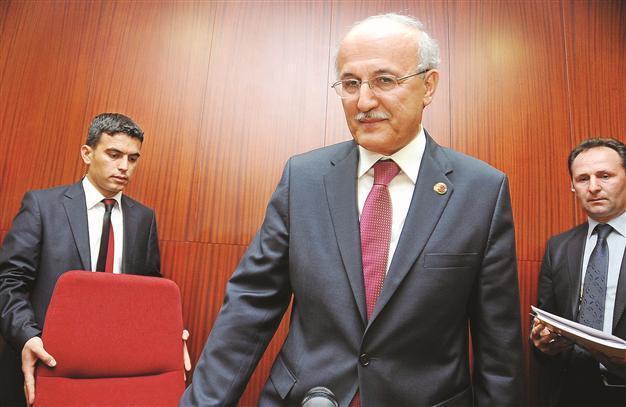Chess game continues at Supreme Court of Appeals ahead of polls
Oya Armutçu ANKARA

HÜRRİYET Photo
The balance of power at Turkey’s Supreme Court of Appeals is like a chess game played on a shifting platform. Five candidates are running for office in the elections scheduled to be held today, but understanding the situation in the chamber is impossible without taking a closer look at the back story.What was the balance of power in the Supreme Court of Appeals before 2010?
When compared to today, the high court accommodated diversity, holding different views before 2010. Its number of members was 250. About 80 of them could be defined as social democrats, ultranationalists or secularists, while there was a group of 60 conservatives. There were some members known to be close to the Gülen community. The remaining either had nationalist values or were close to the center, while there were also several members who did not act with any group.
How did the balance of power change with the 2010 referendum?
After the constitutional referendum in 2010 and amendments made on Feb. 14, 2011, 137 new seats were created for the high court. Together with vacant seats, a total of 160 new members were elected to the Supreme Court of Appeals, making the total number of seats 387. The former Supreme Council of Judges and Prosecutors (HSYK), which was formed after the referendum and remained until 2014, were made up of figures who represented the “government-community” alliance. This HSYK sent 160 new members to the Supreme Court, and more than 130 of them were names close to the Gülen Community. The rest were pro-government names. When the already existing conservative group is also taken into consideration, it is the “Gülenists” and the conservatives who constitute the majority.
What was the vote distribution before 2014?
Those new members who were selected by the HSYK, named as the “160s” and who are close to the community, generally voted as a block in elections. A significant portion of the veteran conservative members of the high court opted to cooperate with this block. In 2011, during the elections to fill the seat vacated by President Hasan Gerçeker’s retirement, the balance of power was obvious. Conservative Nazım Kaynak was easily elected in the first round, receiving 197 votes from this alliance. He retired about a year later. In the next elections, conservative Ali Alkan won again in the first round with 201 votes. This block acted together and held power until the graft operations that erupted on Dec. 17, 2013, but they split after that date.
What did the government do after Dec. 17?
After the Dec. 17 and 25 investigations, war began between the Gülen Community and the government. The government tried to restructure the high court with a new justice package, but the community wing blocked the elections for the presidential council. Government-supported candidates lost in these elections when the nearly 130 members of the Gülenist group allied with the opposition social democrats and ultranationalists. The balance of power was shattered in the Supreme Court of Appeals. In the General Assembly, 287 of the 321 present members rejected the government’s plan.
Who is the Unity in Justice Platform (YBP)?
The government reacted to this outcome with a two-legged strategy. First, it tried to make an alliance with the social democrats and ultranationalists to break the cooperation of this segment with the community. For this aim, the YBP was formed. Some social democrat and nationalist judges and prosecutors went into an alliance with the YBP. As a matter of fact, the candidates of the YBP coalition won the new HSYK elections on Oct. 12, 2014.
The second part of the strategy was in order to incapacitate the numerical power of the community; they once more increased the number of members and departments of the high court.
What is the distribution of votes now?
The new 144 members of the Supreme Court of Appeals elected by the HSYK were all from the YBP coalition, with 32 of them social democrats and 112 of them nationalist-conservatives.
With immense restructuring and repositioning, the figures who are close to the community have been neutralized.
In the presidential elections to be held Tuesday, the YBP alliance is supporting İsmail Rüştü Cirit. However, there is a certain reaction to Cirit within the coalition which may cause the alliance to split. If Cirit cannot win in the first round, there are predictions that the needle may point to the other candidate, Ali Suat Ertosun. However, Cirit is expected to be easily elected in the first round with more than 350 votes.
















